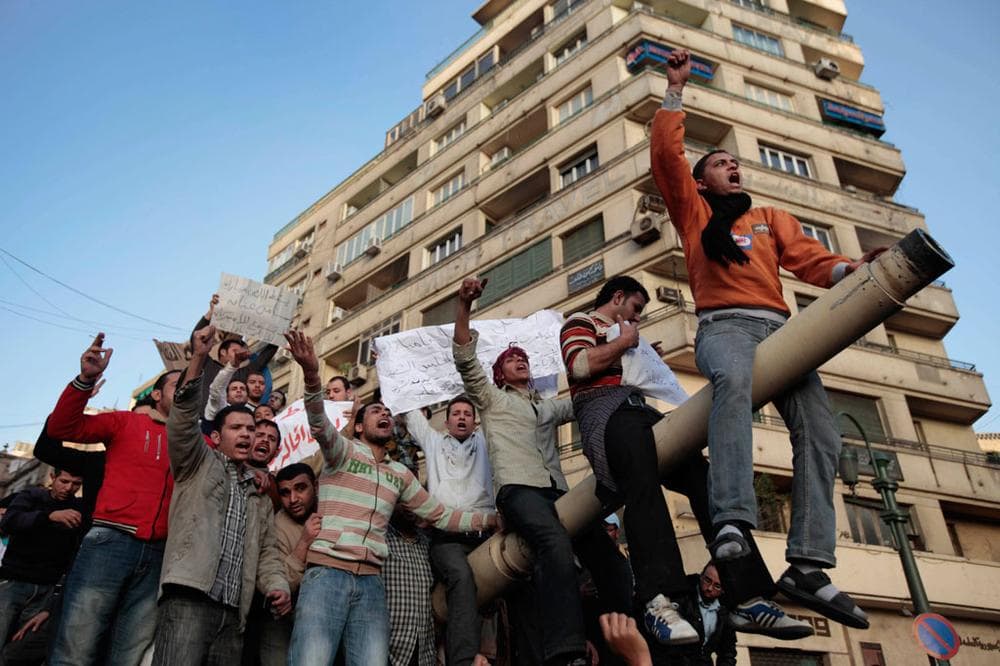Advertisement
Egyptian Protester: ‘We Are The Majority’

BOSTON — After living nearly all his life under a dictatorship, 31-year-old Hossam Bahgat says he has never seen this kind of unity on the streets of Cairo.
"The mood is just very festive, almost exuberant," Bahgat said. "There's more certainty every day that we are the majority of Egyptian people, and that's very empowering." Men, women, people of all faiths and political views and classes, he said.
Bahgat, director of the Egyptian Initiative for Personal Rights, spoke to Here & Now by telephone Monday.
Bahgat and thousands of other Egyptians are ignoring a curfew and gathering in Cairo's Tahrir, or Liberation, Square to prepare for Tuesday's million-person march. The protesters are demanding President Hosni Mubarak resign, a week after the chaos erupted.
"All the tanks are surrounded by young soldiers who have already become friends with the protesters. We share food and drinks and cigarettes and jokes."
Hossam Bahgat
Army soldiers, once a startling sight in Cairo, are now commonplace. "All the tanks are surrounded by young soldiers who have already become friends with the protesters," Bahgat said. "We share food and drinks and cigarettes and jokes, and sometimes even they chant with us."
He is there to protest what he calls decades of human-rights abuses. Mubarak declared a state of emergency upon taking office in 1981, suspending civilian courts and the legal right to due process.
"Mubarak detained unlawfully thousands and thousands of people without charge or trial, up to 16,000 people by some estimates, for being a risk to public security," Bahgat said. "Torture under Mubarak became so endemic and so systemic that everyone was at risk of being tortured."
Mubarak is still running the country. He swore in a new cabinet Monday.
Egyptians are reportedly stockpiling water and food, and stores are running out of staples such as eggs and meat. Internet access and phone service is still spotty.
Bahgat said the protests are as much economic as political. More than 40 percent of Egyptians live under the World Bank's poverty line of two U.S. dollars per day, he said. Even as the country's tourism and IT industries flourish, he said, more people are becoming impoverished.
"This is a revolution that demands a complete transformation, from dictatorship to a democracy, because people finally made the link between their economic situation and the fact that they have lived under a dictator for 30 years," Bahgat said.
WBUR's Andrew Phelps compiled this report.
This program aired on January 31, 2011. The audio for this program is not available.